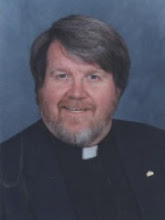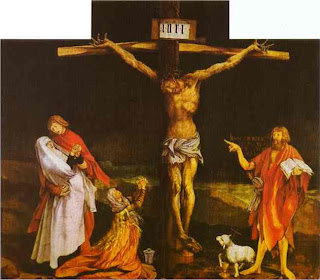
Óscar Arnulfo Romero y Galdámez was in 1917, in El Salvador in Central America. As a child, he could often be found at one of the town's two churches during his free time. Then in 1942, Romero was ordained a Roman Catholic priest while studying in Rome.
Romero worked as a parish priest in Anamorós but then moved to San Miguel where he worked for over 20 years. He promoted various apostolic groups, started an Alcoholics Anonymous group, helped in the construction of San Miguel's cathedral. He was later appointed Rector of the inter-diocese seminary in San Salvador and became the director of the archdiocesan newspaper, which became fairly conservative while he was editor. In 1970 he was appointed auxiliary bishop to San Salvador Archbishop Luis Chávez y González, a move not welcomed by the more progressive members of the Priesthood in El Salvador. He took up his appointment as Bishop of the Diocese of Santiago de María in December 1975. On 23 February 1977, he was appointed Archbishop of San Salvador. While this appointment was welcomed by the government, many priests were disappointed, especially those openly aligning with Marxism. The Marxist priests feared that his conservative reputation would negatively affect liberation theology's commitment to the poor.
Then, on 12 March, a progressive Jesuit priest and personal friend, Rutilio Grande, who had been creating self-reliance groups among the poor, was assassinated. His death had a profound impact on Romero who later stated, "When I looked at Rutilio lying there dead I thought, 'If they have killed him for doing what he did, then I too have to walk the same path'". Romero urged the government to investigate, but they ignored his request, and the censored press remained silent.
In response to Fr. Rutilio's murder, Romero revealed a radicalism that had not been evident earlier. He spoke out against poverty, social injustice, assassinations and torture. As a result, Romero began to be noticed internationally. In 1979, an even more oppressive government came to power amid a wave of human rights abuses by paramilitary right-wing groups and the government. In February 1980, Romero was awarded an honorary doctorate by the Catholic University of Leuven. On this visit to Europe to receive this honor, he met Pope John Paul II and expressed his concerns at what was happening in his country. Romero argued that it was problematic to support the Salvadoran government because it legitimized terror and assassinations. He also wrote to President Jimmy Carter in February 1980, warning that increased US military aid would "undoubtedly sharpen the injustice and the repression inflicted on the organized people, whose struggle has often been for their most basic human rights".
Oscar Romero reported to others “ In less than three years, more than fifty priests have been attacked, threatened and slandered. Six of them are martyrs, having been assassinated; various others have been tortured, and others expelled from the country. Religious women have also been the object of persecution. The archdiocesan radio station, Catholic educational institutions and Christian religious institutions have been constantly attacked, menaced, threatened with bombs. Various parish convents have been sacked.”
In mid-March 1980, Romero stated in a sermon on the parable of the wheat. "Those who surrender to the service of the poor through love of Christ, will live like the grains of wheat that dies. It only apparently dies. If it were not to die, it would remain a solitary grain. The harvest comes because of the grain that dies We know that every effort to improve society, above all when society is so full of injustice and sin, is an effort that God blesses; that God wants; that God demands of us". "I am bound, as a pastor, by divine command to give my life for those whom I love, and that is all Salvadoreans, even those who are going to kill me."
Then on March 23, 1980, Archbishop Romero made the following appeal to the men of the armed forces: "Brothers, you came from our own people. You are killing your own brothers. Any human order to kill must be subordinate to the law of God, which says, 'Thou shalt not kill'. No soldier is obliged to obey an order contrary to the law of God. No one has to obey an immoral law. It is high time you obeyed your consciences rather than sinful orders. The church cannot remain silent before such an abomination. ...In the name of God, in the name of this suffering people whose cry rises to heaven more loudly each day, I implore you, I beg you, I order you: stop the repression"
The next day, Romero was assassinated while celebrating Mass at a small chapel located in a hospital called "La Divina Providencia". According to an audio-recording of the Mass, he was shot while elevating the chalice at the end of the Eucharistic rite. When he was shot, his blood spilled over the altar along with the contents of the chalice.
In 1998, a Gallery of 20th century martyrs dedicated at London’s Westminster Abbey, including Rev. Martin Luther King, Jr. , Archbishop Óscar Romero, and Pastor Dietrich Bonhoeffer.

On 24 March 2010—the thirtieth anniversary of Romero's death—Salvadoran president Mauricio Funes offered an official state apology for Romero's assassination. Speaking before Romero's family, representatives of the Catholic Church, diplomats, and government officials, Funes said those involved in the assassination "…unfortunately acted with the protection, collaboration or participation of state agents".
Most recently, on 22 March 2011 Barack Obama, during an official visit to El Salvador (his last stop on a Latin-American tour), went to visit Romero's resting place.
Romero's words -- a selection:
We must not seek the child Jesus in the pretty figures of our Christmas cribs. We must seek him among the undernourished children who have gone to bed at night with nothing to eat, among the poor newsboys who will sleep covered with newspapers in doorways. --Archbishop Oscar Romero, December 24, 1979
" A church that suffers no persecution but enjoys the privileges and support of the things of the earth - beware! - is not the true church of Jesus Christ. A preaching that does not point out sin is not the preaching of the gospel. A preaching that makes sinners feel good, so that they are secured in their sinful state, betrays the gospel's call." (1/22/78)
"When the church hears the cry of the oppressed it cannot but denounce the social structures that give rise to and perpetuate the misery from which the cry arises." (8/6/78). -- The Church: Called to Repentance, Called to Prophecy
I must tell you, as a Christian, I do not believe in death without resurrection. If I am killed, I shall arise in the Salvadoran people.’

























